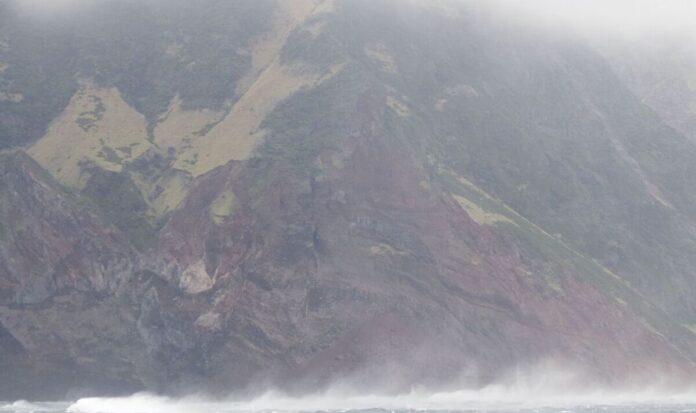Tristan da Cunha is a remote British Overseas Territory (Image: Getty) A tiny island hidden in the vast Atlantic has been cloaked in mystery for centuries partly due to having a population of only 245 inhabitants and a ban on new arrivals. Measuring approximately seven and a half miles across the British Overseas Territory is not an easy place to get to, sitting some 1,750 miles from the Coast of South Africa. Tristan da Cunha’s population primarily relies on farming and fishing , sustaining a largely self-reliant community. Given the islander’s limited resources immigration is necessarily tightly controlled. In fact, the island’s authorities do not allow immigration unless there are pre-existing familial ties to the island, and even then, residency is limited. The purchase of property on the island is also prohibited. Tristan da Cunha in 1939 (Image: Getty) There are only a few job prospects for expats on Tristan at any one time and these vacancies become available only two to three times per year. The most in-demand jobs tend to be doctors, educational advisors, and scientific and technical professionals such as agricultural consultants and conservationists. Any openings are announced in relevant professional magazines, websites, and on the Jobs Page of the Tristan website. Tristan does however provide a warm welcome to visitors on short visits. Travel to Tristan is only possible by boat with the bulk of ships departing from Cape Town, South Africa, requiring a minimum five-day cruise in either direction. Alternatively, visitors can catch a cruise ship from Argentina beginning their voyage from the city of Ushuaia. Tristan was first discovered in 1506 but was not continuously settled until 1817 when a group of British soldiers and civilians, including women and children, arrived. The island was briefly evacuated owing to a volcanic eruption in 1961, but recovered soon after. Tristan da Cunha remains a volcanic island with a towering volcanic summit known as Queen Mary’s Peak, which stands at 6,765 feet above sea level. The island’s plant life has adapted to the harsh volcanic landscape which coupled with the isolation has made for unique biodiversity. Over the years this has made the island a paradise for both wildlife enthusiasts and researchers.
The world’s most remote island just seven miles wide where newcomers are banned
Sourceexpress.co.uk
RELATED ARTICLES


